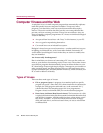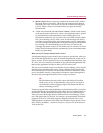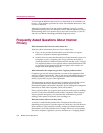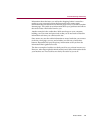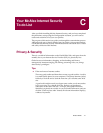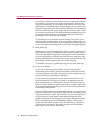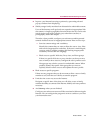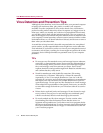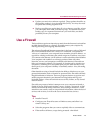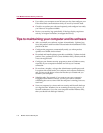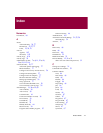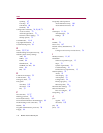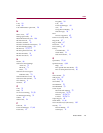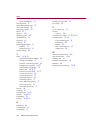
Your McAfee Internet Security To-do List
114 McAfee Internet Security 5.0
Virus Detection and Prevention Tips
Although far from harmless, most viruses that infect your personal computer
or laptop will not destroy data, play pranks, or render your computer
unusable. Even the comparatively rare viruses that do carry a destructive
payload usually produce their nasty effects in response to a trigger event. In
most cases, unless you actually see evidence of a payload that has activated,
you will have time to deal with the infection properly. The very presence of
these small snippets of unwanted computer code can, however, interfere with
your computer's normal operation, consume system resources and have other
undesirable effects, so you should take them seriously and be sure to remove
them when you encounter them.
A second idea to keep in mind is that odd computer behavior, unexplained
system crashes, or other unpredictable events might have causes other than
virus infections. If you believe you have a virus on your computer because of
occurrences such as these, scanning for viruses might not produce the results
you expect, but it will help eliminate one potential cause of your computer
problems.
TIPs
n Do not open any files attached to an e-mail message from an unknown,
suspicious, or untrustworthy source. Do not open any files attached to
an e-mail message unless you know what it is, even though it appears
the e-mail message came from someone you know. Some viruses
replicate themselves and spread through email. Better be safe than sorry
and confirm that they really sent it.
n Watch for attachments with double file extensions. File naming
convention use a "file name" followed by a 3-letter file extension
separated by a "dot." For example, Readme.txt - here 'txt' is the file
extension. It you receive and e-mail message and there is an attachment
that displays two file extensions (for example Readme.txt.exe) do not
open the message. ·Do not open any files attached to an e-mail message
if the subject line is questionable or unexpected. If necessary, save the file
to removable storage disk and run your VirusScan software to scan for
viruses.
n Delete chain e-mail and junk e-mail messages. Do not forward or reply
to any to them. These types of e-mail messages are considered spam,
which is unsolicited, intrusive mail that clogs up the network.
n Do not download any files from strangers. Exercise caution when
downloading files from the Internet. Ensure that the source is a
legitimate and reputable one. Verify that an anti-virus program checks
the files on the download site. If you are uncertain, do not download the
file at all or download the file to a floppy or removable device and run
your VirusScan program.



